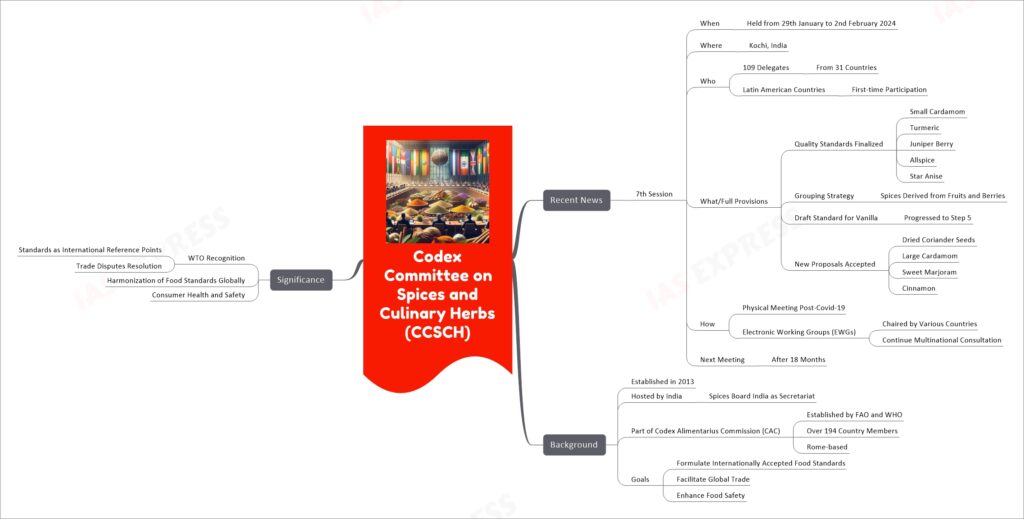Codex Committee on Spices and Culinary Herbs (CCSCH)

The Codex Committee on Spices and Culinary Herbs (CCSCH), a segment of the Codex Alimentarius Commission established by the FAO and WHO, recently concluded its 7th session in Kochi, India. This session, the first physical meeting post-Covid-19, was attended by 109 delegates from 31 countries, including a significant first-time participation from Latin American countries. The committee achieved notable results by finalizing quality standards for five spices—small cardamom, turmeric, juniper berry, allspice, and star anise—and adopting a novel strategy of grouping spices, starting with those derived from fruits and berries. Proposals for developing standards for dried coriander seeds, large cardamom, sweet marjoram, and cinnamon were also accepted. CCSCH’s work is crucial for formulating internationally accepted food standards, enhancing global food safety, and facilitating fair trade, with its standards recognized by the WTO as reference points for resolving trade disputes.
If you like this post, please share your feedback in the comments section below so that we will upload more posts like this.

